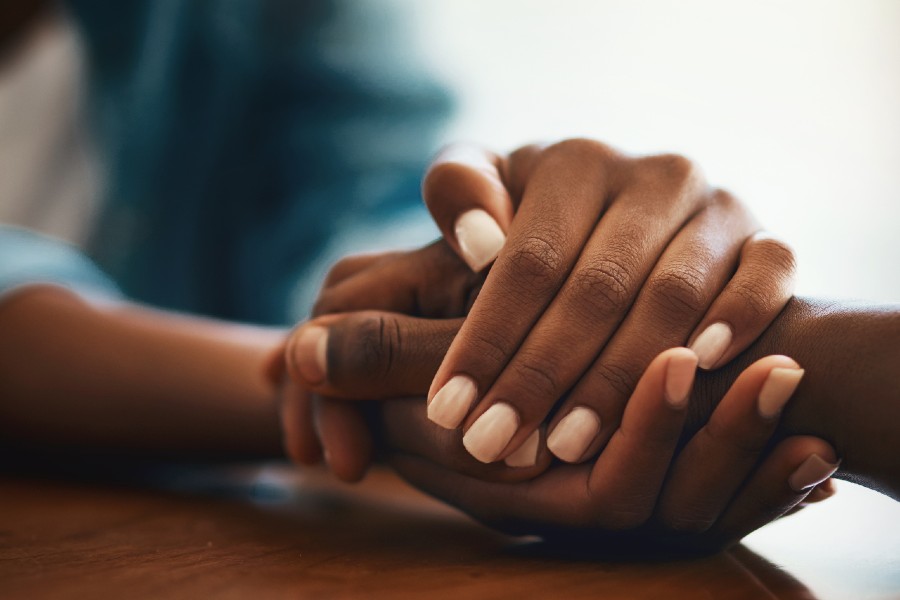
When you lose a loved one, it’s one of the hardest things you can go through in your life.
It’s difficult to deal with grief no matter the situation, but depending on the circumstances, you might also have to deal with a lot of technicalities at the same time.
For example, if your loved one died in an accident, you may be working to receive compensation for medical expenses and other damages.
You may have to deal with hospitals, and you have to go through the process of opening an estate.
These are all legal and logistical considerations that you’re juggling while you’re managing what can feel like overwhelming grief.
As you navigate this time, you may be wondering what you can do to make it through. The following are tips that may help you with your grief, whether your loved one died suddenly and unexpectedly or following an illness.
1. Understanding Grief
Sometimes, you can help yourself simply by learning about grief. Grief is our natural response to a loss. It happens when someone or something we love is taken away, and it can lead to unexpected, difficult emotions. Grief can impact your physical health as well.
While we most often talk about grief and losing a loved one, there are other situations that can lead to grief as well. For example, a divorce or the breakup of a relationship, the loss of health, losing a job, or the loss of something you’ve long dreamed about can all cause grief.
The process of grieving is unique to the individual, and there’s not a right or wrong way to grieve. The way that you grieve depends on your coping mechanisms, life experiences, faith, personality, and how significant of a loss you’re dealing with.
It takes time to go through the process of grieving, and you can’t rush it. There’s also no normal timetable.
2. Know That you Will Feel Better At Some Point
While grief takes time to deal with, and you can’t rush it, you can comfort yourself by understanding that you won’t feel like this forever. Some people describe grief as a wave. You can ride the wave. Understand the feelings that might be coming and try to find support for those feelings.
3. There is a Difference Between Grief and Depression
Grief and depression aren’t the same things, and you may need more help if you find that your grief is starting to become more complex. Sometimes people think that grieving is unhealthy, or vice versa, they may ignore potential mental health conditions thinking that it’s just the grief.
When you first experience a profound loss, you may have a hard time eating and sleeping. You may feel like you’re experiencing intense sadness for the first few months, but this should start to lessen.
While grief is a process, if you don’t feel like your symptoms start to improve at least somewhat, or you think that they’re getting worse, it can be worthwhile to talk to a mental health professional.
4. Practice Self-Care
When you’re feeling overwhelmed with grief, practicing self-care isn’t easy, but it’s one of the most important things you can do to help yourself navigate what you’re going through. You want to take time for things that make you feel happy or relaxed. At first, it can feel like you’re forcing yourself to practice self-care, but eventually, it will start to feel more like a normal routine for you.
Even seemingly simple things like getting regular sleep and eating nutritious meals are part of practicing self-care.
You can also try to exercise whenever you feel up to it. Just walking around outside a bit can do a lot to help symptoms of grief and loss.
It’s possible as part of your practice of self-care, you start to find activities you can incorporate into your routine that give you purpose and meaning. Maybe, for example, you start to journal or paint.
5. Consider a Support Group
When you’re experiencing grief, you may feel like the people around you don’t understand you. It’s very likely they don’t if they haven’t gone through a similar situation before. You can feel isolated and lonely, and these are things that are going to make the symptoms of grief worse.
You can find support among people who are going through something similar. Support groups are a good way to share your experiences with grief and also provide support to others.
If you don’t prefer to join a support group, turn to friends and family. It’s time to lean on the people who care about you. Even if you like to be self-sufficient, there may be no time in your life you need your loved ones more than the time you’re going through grief.
People will want to help you, and they’ll be offering help in many forms, so take them up on it.
You do also have to realize that some people might feel uncomfortable trying to comfort you while you’re grieving, but if a person is reaching out, it means they care.
6. Talk to a Grief Counselor
Handling grief is challenging, and working with a counselor or therapist can help you navigate it. Mental health professionals specializing in grief counseling can help you work through whatever your emotions are, and they can help you explore negative thoughts and how those are affecting your behavior.
They can also help you identify obstacles to grieving.
7. Face Your Feelings
Finally, you can’t avoid grief. You might try to run away from it for a time, only to find that it’s not possible. It’s okay to face your feelings and sit in them, no matter how unpleasant they might be. If you try to suppress your grief or avoid sadness, it’s going to make your grieving process longer and prevent you from healing.
When you have unresolved grief, it can also put you at a greater risk of anxiety, depression, substance abuse, and physical health problems.
Become a Harlem Insider!
By submitting this form, you are consenting to receive marketing emails from: . You can revoke your consent to receive emails at any time by using the SafeUnsubscribe® link, found at the bottom of every email. Emails are serviced by Constant Contact








